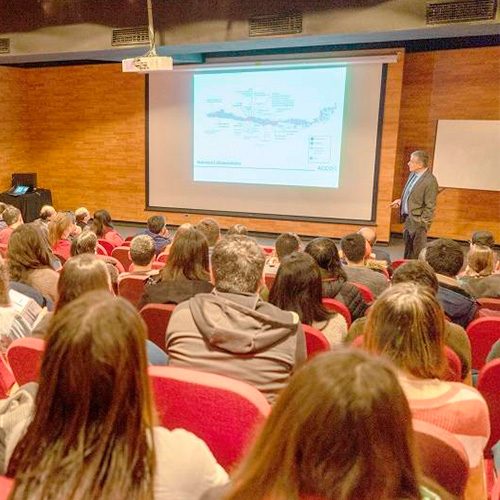In the UTalca experts analyzed the prevalence of cardiovascular diseases and evaluated public policies

At the day of Biomedicine of the Faculty of Health Sciences, scientific research of postgraduate scans in biomedicine was released.
Because cardiovascular disease, next to cancer, are one of the pathologies that generate the most deaths in Chile and the world, The University of Talca prioritized the development of research on this subject.
And as part of this work, this week was the Fourth Day of Biomedicine, specialists analysed the prevalence of these diseases and the impact of public policy on their prevention and treatment.
At the start of the event, organized by the Faculty of Health Sciences, Sergio Lavandero exhibited, Director of the Center for advanced chronic diseases, who released the results of their research and conducted an evaluation of the prevention and promotion policies of Minsal. "The first signs are positive, for example, in smoking. Four years ago, the National Health Survey showed that we had 40% of smokers and this is the first time, for a long time, which decreased by 7%. This shows that when you do public policies that make it difficult for people to smoke, these have consequences. Salt content in food has also been reduced, for example on bread. With regard to the Food Labeling Act, we're looking at whether black stamps are going to be effective", said.
The academic and researcher explained that, through the system Choose to Live Healthy, the Ministry of Health aims to promote quality food, but he said this isn't always possible: "Choose Eat Sano is a program in good theory, but sometimes people don't choose. For example, the poor cannot choose so we must find a way for these policies to be realistic and educate is key".
On the other hand, Dr. Rodrigo Moore, academic and director of the UTalca PhD Program in Biomedical Sciences, stated that "living conditions make us more prone to cardiovascular disease, then the big challenge is how we make our work professional and work more compatible and that it doesn't complicate our health and ends up killing us".
In both, Lavandero emphasized that "there are seven factors for ideal cardiovascular health, there are some non-modifiable ones that are genetic in type, of which you can't do much, but there are four others that are modifiable like exercising, smoking, stress and a healthy diet. This has to do with culture and education about the importance of eating healthy foods, no so many calories, saturated or high fats in sugars".
See note complete: El HeraldO Newspaper
